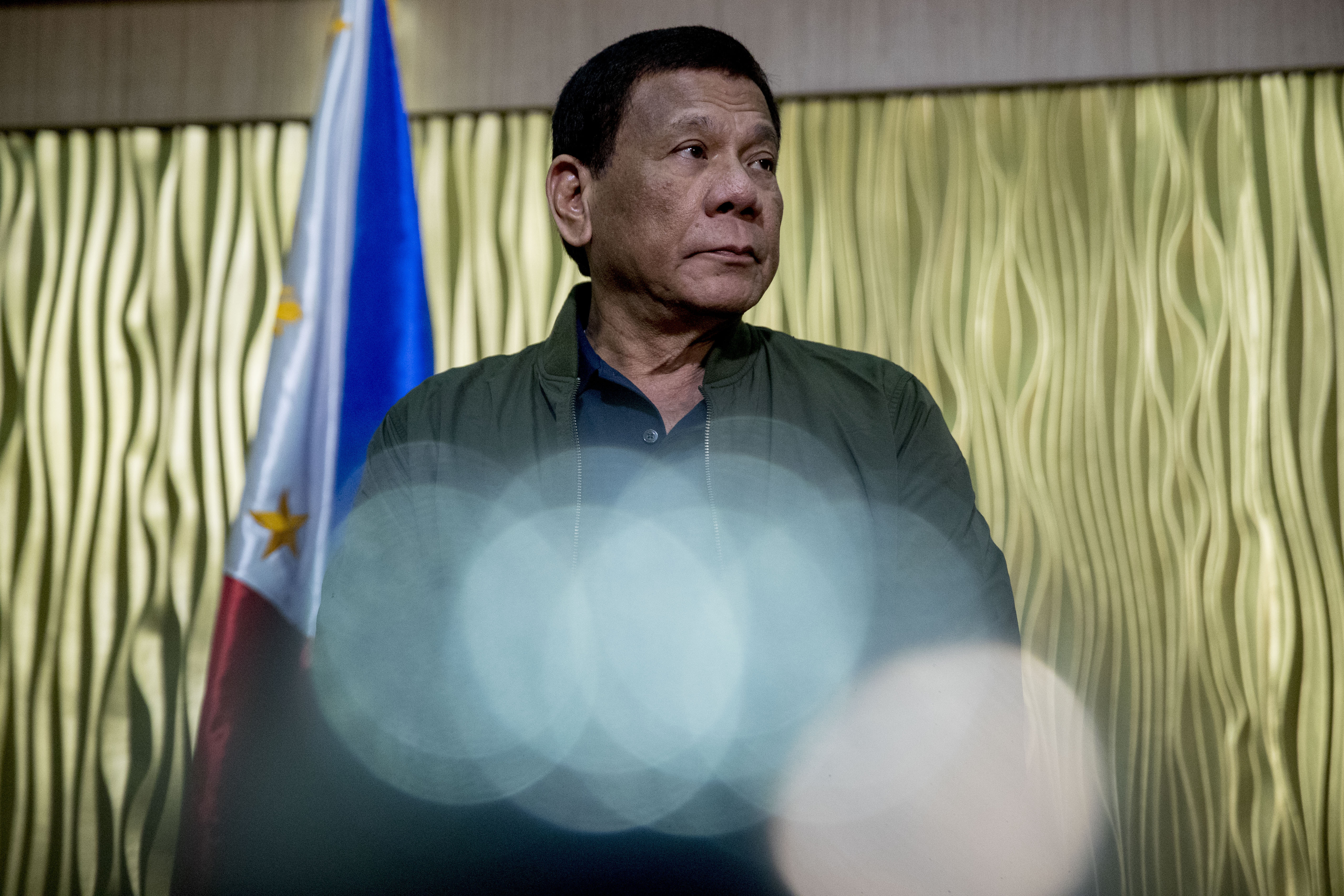President Rodrigo Duterte appears to have changed his stand on the medical use of marijuana and said that he has no intention of legalizing it.
“That’s a plant, marijuana. They are cultivated. They’ll give you the excuse to harvest and say it’s medicinal. Everything will be medicinal, that would be an excuse. I did not agree to it. Not in my time. Some other President, maybe,” the President said on Friday at the Partido Demokratiko Pilipino-Lakas ng Bayan (PDP-Laban) campaign rally in Victorias City, Negros Occidental.
The President’s latest remarks contradicted his earlier views expressing openness to the idea of using marijuana for medical purposes when he first assumed the presidency in 2016.
‘Ignorant’
In December 2018, Malacañang said the President was “in favor of the limited use of marijuana,” and that he would support any measure consistent with this stand.
In the same month, the President admitted using marijuana to stay awake — a remark that he eventually described as a joke.
During the PDP-Laban rally, the President acknowledged his ignorance of research findings on medical marijuana, and insisted that legalizing it would provide a convenient excuse for users.
“I am ignorant of that kind of research, I must admit. I do not read it and I do not intend to legalize it. I don’t want to,” the President said.
Marijuana is a prohibited substance under Republic Act No. 9165, or the Comprehensive Dangerous Drugs Act of 2002.
But on Jan. 29, the House of Representatives approved House Bill No. 6517, or the Philippine Compassionate Medical Cannabis Act, seeking to legalize marijuana for medical purposes, on a vote of 163 in favor, five against, and three undecided.
Principally authored by Isabela Rep. Rodolfo Albano III, the bill would make it legal to use marijuana to benefit patients suffering from debilitating diseases, defined as those causing wasting syndrome, severe and chronic pain, severe nausea, seizures including those characteristic of epilepsy, or severe and persistent muscle spasms.
The bill provides for the delivery, possession, transfer, transportation or use of marijuana for qualified, registered patients.
Albano, however, clarified that his bill would not decriminalize the recreational use of marijuana.
The bill authorizes the University of the Philippines (UP) National Institute of Health, Health Sciences Center of the UP System, Philippine Institute of Traditional and Alternative Health Care, and other organizations to conduct research on the medical use of cannabis, and mandates the Department of Health (DOH) and the Philippine Drug Enforcement Agency to regulate it.
A Medical Cannabis Compassionate Center would also be set up to be licensed by the DOH.
Senate version
In the Senate, the closest measure to a medical marijuna bill was Senate Bill No. 1313, or the public health intervention for drug abuse bill, which was filed by Sen. Risa Hontiveros in February 2017.
Hontiveros’ bill seeks a comprehensive public health approach to the country’s drug policy in the wake of President Duterte’s brutal war on drugs.
The bill has been referred to the Senate committee on health and demography.
Reacting to President Duterte’s turnaround on the issue, Sen. JV Ejercito, who had led the Senate hearing on the use of medical marijuana, said the matter should still be discussed.
“Maybe we should open the discussions to know the benefits (of medical marijuana) and later on, if the President changes his mind, at least we have already studied [the matter],” Ejercito said.
Out of frustration, maybe
The President’s latest position on the use of marijuana could have stemmed from “his frustration with the (government’s) war on drugs. He went all out (for) three years, but [the problem] is still here,” the senator said in a radio interview.
Ejercito noted that there were concerns that marijuana could be abused if it were legalized, which was why it was important to have mechanisms to safeguard its use.
Senate President Vicente Sotto III said he agreed with Mr. Duterte’s new position on medical marijuana and said that the measure would not have passed the Senate anyway.
A provision in the existing Comprehensive Dangerous Drugs Act already allows doctors to obtain marijuana for their patients if they deem it necessary, Sotto said, adding that those pushing for the approval of the new law were probably involved in planting and trafficking of marijuana. —With a report from Leila B. Salaverria
